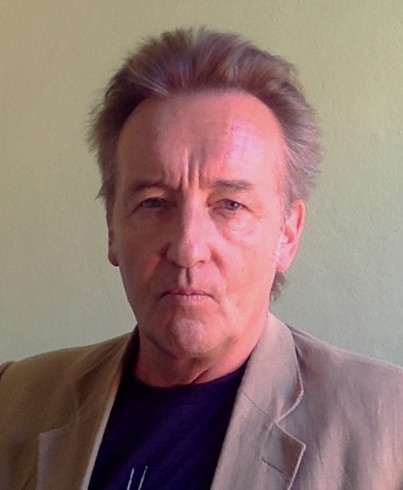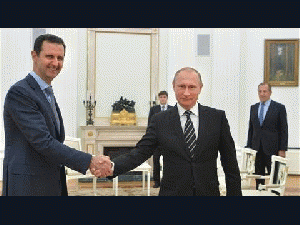Reprinted from Strategic Culture Foundation
Like a good laundering machine, the Western media operate an efficient spin cycle for rinsing out dirty water. No sooner had Russia's foreign ministry issued a fairly straightforward statement on Syria's political future this week, then Western media news outlets were getting all in a lather with the spin that Moscow was preparing to hang Syrian President Bashar al-Assad out to dry. What that reaction shows is that these outlets are dutifully laundering the political agenda of their governments. That agenda seems to involve getting Russia to implement, unwittingly, the Western objective of regime change in Damascus.
Russian foreign ministry spokeswoman Maria Zakharova was quoted by Russian news agency ITAR-TASS as saying that the Syrian leader's hold on power was not a matter of principle for Moscow. She also spoke about other important issues: the imperative to respect the sovereign right of the Syrian people to decide the political future of their country; and that regime change in Syria would usher in even greater disaster from terrorism and refugees.
However, it was the words on Assad that got picked up and thrown into the spin cycle with haste. Britain's state broadcaster, the BBC, issued a breaking news flash with the headline: "Russia says keeping Assad not crucial." While American channel CNN adverted that: "Russian leaders were opening the door for Assad's exit."
Such so-called news items are laughably becoming more like commercial breaks. Commercial breaks between, well, more commercial breaks. Low on intelligent content and pitched to get viewers to buy somebody's tawdry product.
There was nothing further to back up either report on BBC or CNN -- only a selective, speculative interpretation of the words from the Russian foreign ministry. There was no mention of the sovereign right of the Syrian nation nor of the global-scale disaster if regime change were to take place. Just a seemingly puerile gaze at the words about Assad's staying in power not being a matter of principle for Moscow.
What the Russian foreign ministry spokeswoman actually said was this: "We have never said Assad's staying in power is a principled aspect. We are saying that the change of regime in Syria could become a disaster not only on a local or even regional scale, but, with account for that problem with refugees that we have now, this could become a big black hole."
Russia had already warned about Western media juggling with its words over Syria, and in particular on attempts to wilfully distort its policy. Following the Vienna summit last weekend on Syria, there was Western speculation that Moscow had tacitly agreed to Assad relinquishing power. Russian Foreign Minister Sergey Lavrov sternly dismissed then what he called were rumours .
"I heard that the rumours are being spread already that it has been or will be agreed that Assad will step down in some period of time. This is not the case," said Lavrov.
If Western media were to provide a journalistic service instead of laundering their governments' political agenda then they might have reported that Russia's position is rightly centered on the sovereignty of Syria and on the defeat of foreign-backed terrorism in that country. That Moscow is saying that the question of Bashar al-Assad staying in power, or not, is not a matter of principle is simply stating that Russia does not view the Syrian leader as a life-long president. Assad's presidency will be subject to the democratic will of the people, which is the all-important sovereign point. What is so controversial or enigmatic about stating that? Nothing, unless there is a mischievous will to misconstrue.
Put another way, if Russia had said instead that Assad staying in power was a matter of principle for Moscow, then the Western media would no doubt have gone into double-spin mode and claimed that the Kremlin was dictating that the Syrian leader must remain in presidential office forever -- regardless of the will of the electorate. One can imagine the headlines in that scenario: "Putin lays down law to Syrian people" and so on.
Of course, Western media spinning is hardly new and the consequences of the latest dash to misinterpret will no doubt be as fleeting as a soapy bubble. But the alacrity with which Western media outlets operated on the issue is instructive.
As argued in a previous column, what appears to be the underlying purpose of Washington and its allies in the recently convened so-called peace talks over Syria is that these powers are seeking their illicit objective of regime change by alternative means. The talks are decidedly less about seeking peace or conflict resolution, as Western media advertise, quoting Western government leaders at face value.
Russia's military operation in Syria to protect the state and its sovereignty from foreign-orchestrated mercenary terror groups has dealt a devastating blow to Washington's covert military agenda of regime change. That agenda, instrumented by the deployment of mercenary terror groups, predates the outbreak of violence in Syria in March 2011 by several years, as uncovered by American journalist Seymour Hersh. Also as disclosed by former French Foreign Minister Roland Dumas, as well as leaked US diplomatic cables indicate from as early as 2009.
Washington and its allies are now being compelled to use a political means to achieve what they couldn't otherwise pull off by covert military means -- because of Vladimir Putin's bold intervention in Syria, beginning on September 30.
Recall, too, that US Secretary of State John Kerry demanded last month, with typical haughtiness, for Russia to bring Assad to the negotiating table. Not that there is much to discuss as far as Washington, London or Paris are concerned. Assad has to go, in their arrogant view, sooner or later.
(Note: You can view every article as one long page if you sign up as an Advocate Member, or higher).






